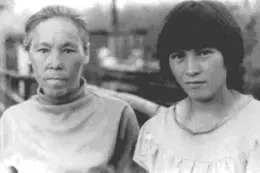In 2003, Hans Rausing Endangered Languages Project sponsored American Linguists to research on the Chulym language. The main aim of the project being to come up with a reading book for children, an archive of digital records and a grammatical structure of the language. This support was given to the Chulym language given that it is an endangered language due to the open hostility it faced during the 20th century. Chulym has never had a written language as it has no orthography. The language is spoken in villages and is normally used to communicate in day to day life at home and among family members. Chulym has an abundant vocabulary that describes a nomadic lifestyle as it has an extensive words that are used to describe fishing, plants, animals and family relations. Chulym’s are Shammaists, that is, they believe in the unseen world of demons and gods.
Chulym is also known as Chulim, Chulym-Turkic, Chulym Tartar or Melets Tartar. Chulym is an independent Turkic language that is closely related to the Khakas, Kamas and Shor languages. The language is spoken in Russia. Chulym has different dialects, based on the geographical location of the people along the Chulym River. The 3 dialects are Lower Chulym, Middle Chulym and Upper Chulym, with Upper Chulym being an extinct dialect. The differences in dialects extends to the grammar, vocabulary and pronunciation of words, such that it may be difficult for people who speak different dialects to understand each other.
It is predicted that Chulym will be an extinct language within the next 25 years. According to the 2002 Russian National Census, the number of Chulym speakers number 656. It is approximated that 35-40 people are fluent in the language. The youngest Chulym speaker is thought to be over 50 years old. In the past, the government discouraged children from speaking their native tongues while in school, which resulted in most children not being able to speak or understand the language. Most Chulym’s are bilingual as they can also speak Russian. Chulym has a number of loanwords from Russian.
